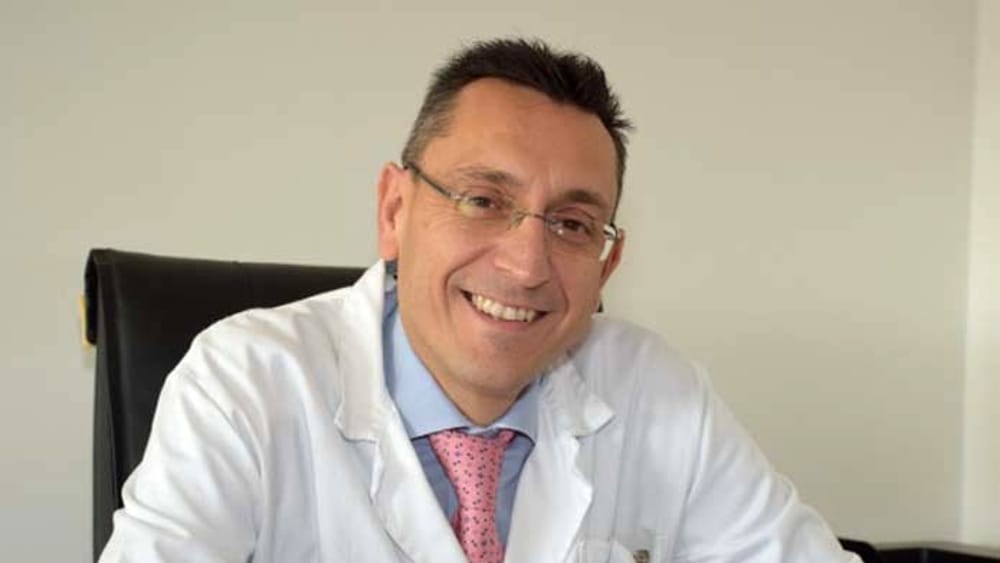Overall deaths from cancer are declining. Between 2018 and 2023, a 6.5% decrease in cancer mortality rates in men and 3.7% in women is estimated. These are the estimates of a study conducted by a group of international researchers led by Carlo La Vecchia, professor of epidemiology at the State University of Milan with the collaboration of the University of Bologna and the support of the Airc Foundation (Italian research association on cancer), the results of which were published in the scientific journal Annals of Oncology. A decline that is also recorded in Romagna, as confirmed George Ercolani, director of Surgery and Advanced Oncological Therapies of Forlì and full professor of Surgery at the University of Bologna. “Also in our area there is a progressive reduction in mortality from cancer, with a progressive increase in survival of patients with cancer, with different percentages depending on the type”, explains Ercolani.
THE CANCER THAT KILLED VIALLI – “Cases on the rise, prevention is fundamental”
THE CANCER THAT AFFECTED FEDEZ – In-depth study with Professor Ercolani
THE BATTLE OF THE PROF – “The disease is progressing. But I don’t want to stop”
Professor Ercolani, are there more mourning among women or men?
“In general, men are more affected. According to Airc data, in Italy one in 2 men and one in 3 women get cancer in their lifetime. In addition to factors probably of a genetic nature, there are certainly “environmental” factors ” such as smoking, alcohol consumption and nutrition that expose men more than women”.
The average age?
“Between 50 and 69 years of age is the group with the highest incidence of tumours. It should however be borne in mind that with increasing age the risk of contracting a neoplasm also increases and therefore the greater aging of the population is associated with a progressive increase in cancer diagnosis”.
PROSTATE CANCER – “Pay attention to body signals”
THE FOCUS – The female universe, between myths to dispel and prevention
When was the peak death rate?
“The Cancer Registry of Romagna shows a progressive reduction in cancer mortality from 1986 to today”.
What are the factors contributing to a decline in deaths?
”There are essentially three reasons. On the one hand, an increase in cases of early diagnosis such as for breast cancer thanks to screening programmes; greater public awareness of risk factors such as cigarette smoking; and lastly, a better capacity for surgical treatment and with more effective and increasingly targeted systemic therapies on the individual patient”.
Is there room for improvement?
”There is ample room for improvement both in terms of greater adherence to screening programs (for example against colorectal cancer), greater attention to risk factors such as smoking, alcohol and obesity, and obviously an improvement in targeted therapies thanks to scientific research in the oncological field”.
What are the most prevalent forms of cancer?
“The most frequent cancers are lung, colorectal, breast and prostate cancer”.
Who can be considered the “big killers” of oncology?
”One of the “big-killers” is certainly pancreatic cancer for which survivals are still very low today. Despite the improvements in recent years, lung cancer also remains with a high mortality rate”.
Researchers highlight the role of overweight and obesity as a risk factor for postmenopausal breast, endometrial, stomach and colorectal cancers. He confirms?
“In general, lifestyle has a significant impact on the incidence of many cancers; overweight-obesity, as well as smoking and alcohol have a significant impact on different types of cancer including endometrium, stomach, colorectal, pancreas”.
Could the pandemic have had an effect on cancer mortality, due to the slowdowns caused in public health services?
“We expect that for a few years there may be an increase in advanced cases due to the negative impact of the pandemic on adherence to screening programs, but I believe that in 2-3 years we can return to normal and indeed to a progressive reduction of such situations”.
In this period in which studies are you focused?
“We are mainly focusing on the advantages of minimally invasive techniques (laparoscopic and robotic) in the treatment of gastrointestinal, liver and pancreatic tumors; and in collaboration with the Irst Irccs of Meldola we are evaluating the effectiveness of new surgical strategies and chemotherapy, as well as the combination of new drugs, for the tumors of these districts”.
